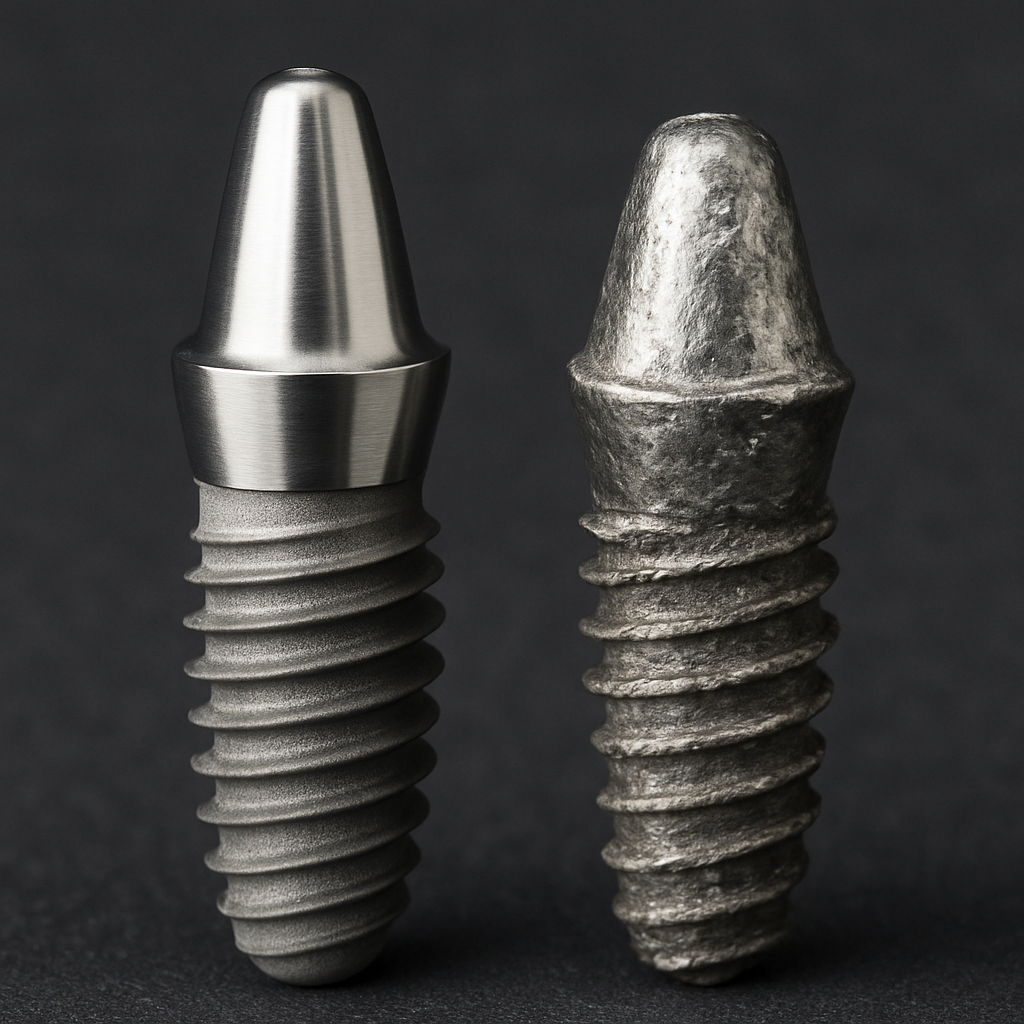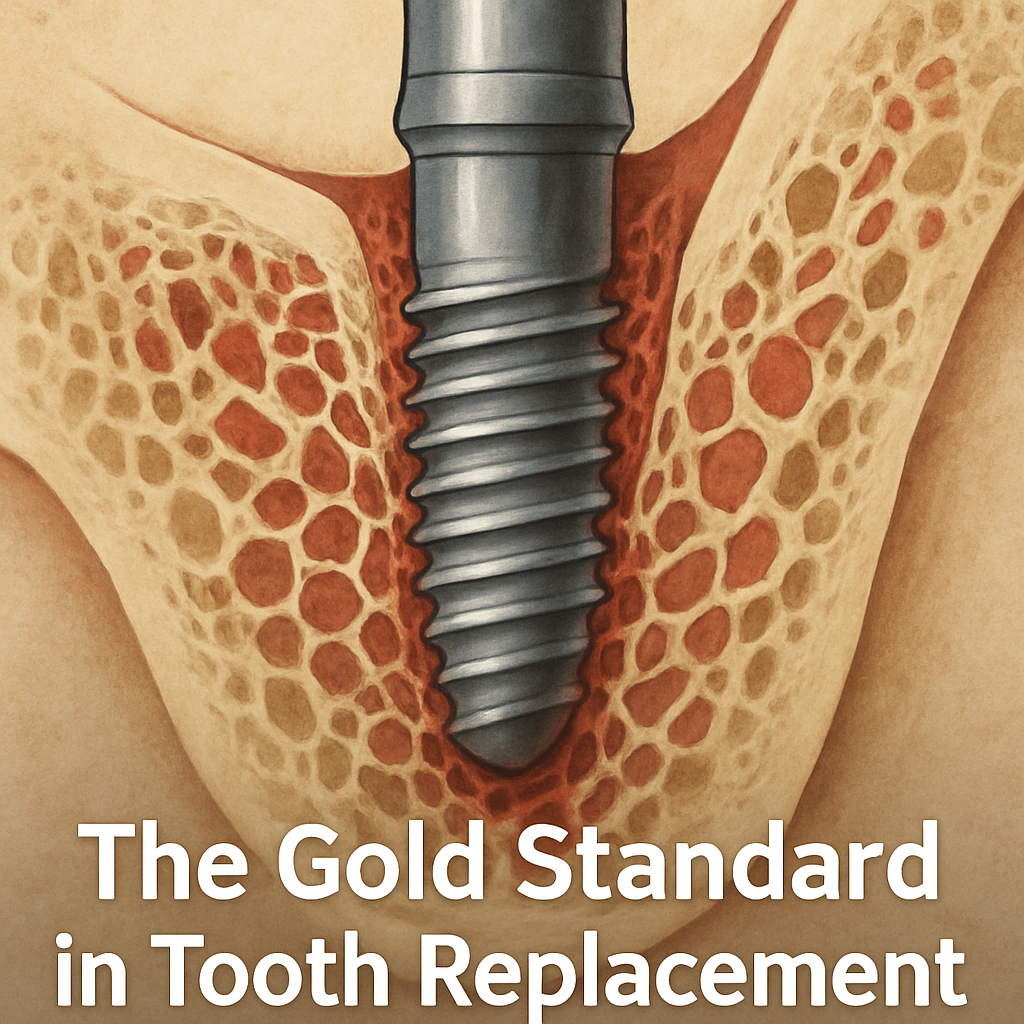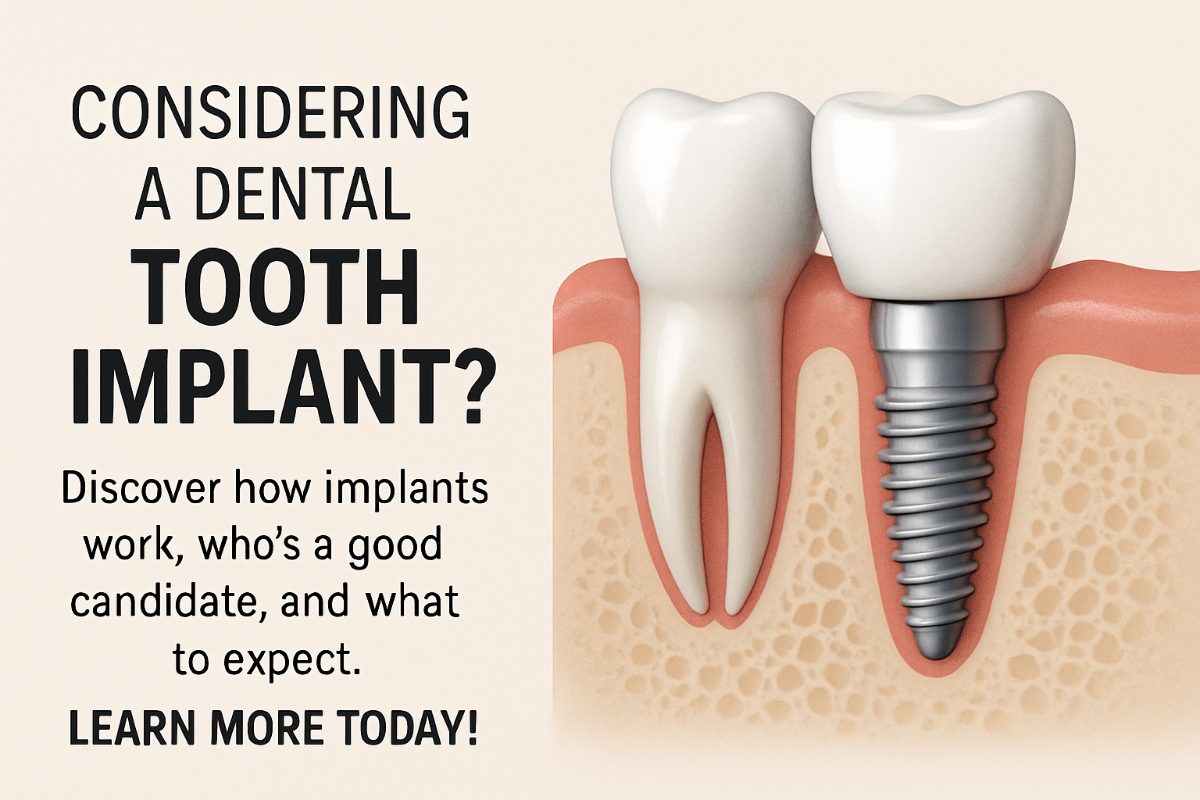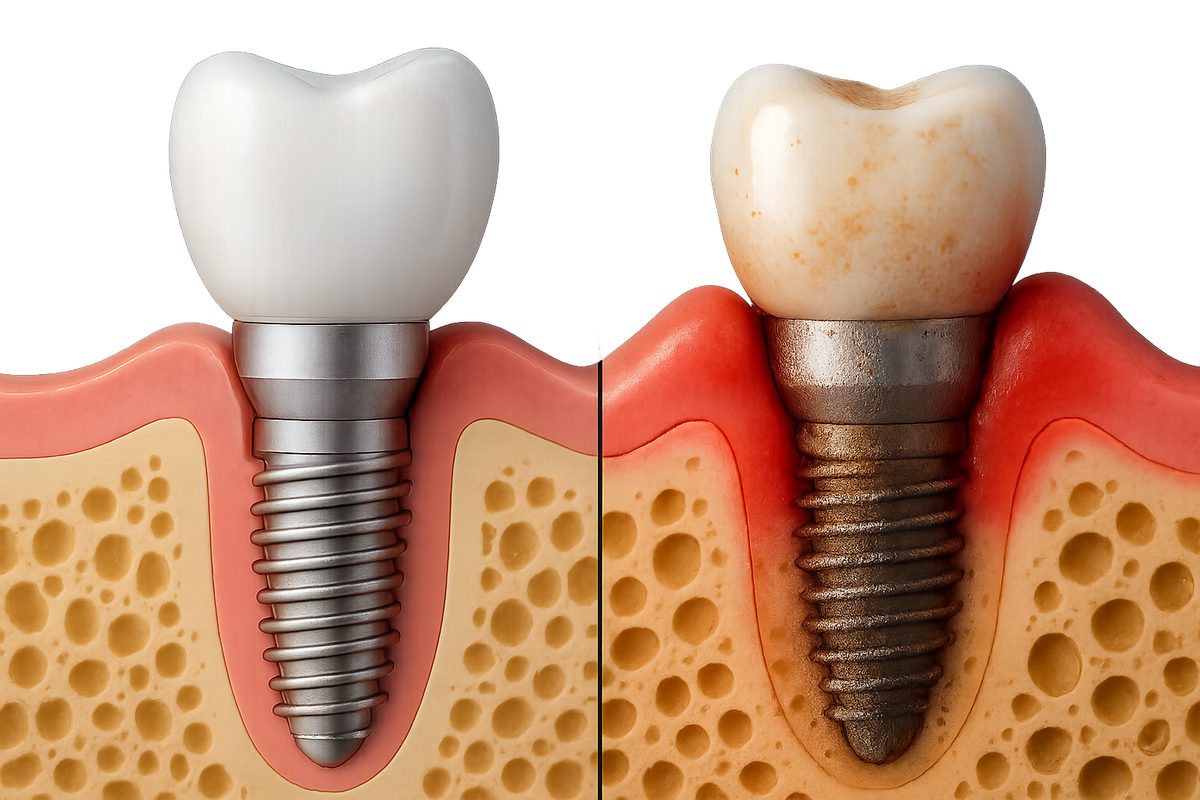Dental Blog - Concord, NC
Tips, Facts, And The
Latest In Dentistry

Looking For The Cheapest Tooth Implants? What To Consider.

Many people searching for the cheapest tooth implants want a fast, low-cost fix for missing teeth. The phrase “cheapest tooth implants” usually means looking for the lowest out‑of‑pocket price, but price alone doesn’t tell the whole story. Lower upfront cost can mean compromises in materials, planning, or follow-up care — and those compromises can lead to pain, failed implants, and higher bills later. Before you choose a low-cost option, weigh savings against safety, longevity, and overall value.
Why people look for the cheapest tooth implants
Many patients are facing job loss, limited insurance benefits, or sudden dental needs and want affordable solutions quickly. Some assume implants are simple or that all providers offer the same quality. Short-term savings can look attractive, but a failed implant or poor fit may mean more appointments, extra procedures, and higher long-term cost.
Hidden costs and risks of choosing the cheapest option
Poor materials and short-lived restorations
Lower prices may use lower-grade implants or cheap crowns that wear, chip, or break sooner. Replacing a failed implant or crown often costs more than choosing a higher-quality restoration initially.
Lack of proper diagnostics
Some low-cost offers skip CBCT scans, detailed treatment plans, or surgical guides. Without proper imaging and planning, providers may miss bone issues or nerve positions, increasing failure risk.
Higher complication rates
Cheaper treatments can mean higher rates of infection, failed osseointegration (implant not fusing with bone), or need for corrective surgeries. Those complications add pain, time off work, and significant extra expense.
What actually drives implant price
Type and number of implants
A single implant costs less than multiple implants or full‑arch All‑On‑X solutions. Complexity and quantity directly affect price.
Materials and lab work
Titanium implants are common and durable; zirconia is an alternative. Crowns and bridges vary from basic porcelain to high‑end layered ceramic or zirconia, and skilled lab work raises cost.
Additional procedures
Bone grafts, sinus lifts, extractions, and sedation add to the bill. These are often necessary for a predictable, long‑lasting result.
Provider experience and technology
Experienced surgeons, guided surgery, and CBCT imaging improve outcomes but increase fees. That investment often reduces long‑term risks and repeat treatments.
Safe ways to lower your implant bill
Get a detailed written treatment plan
Ask for an itemized plan showing implant brand, restoration type, lab costs, and follow‑up visits. Use this to compare offers fairly.
Ask about warranties and long-term care
Look for guarantees on parts and workmanship and clear maintenance plans to protect your investment.
Financing and phased treatment
Consider in‑office financing, third‑party lenders, or staged treatment to spread costs without cutting essential care.
Consider clinically appropriate alternatives
Bridges or removable dentures can be cheaper and appropriate in some cases. Discuss pros and cons with your dentist.
How to compare providers beyond price
Credentials and experience
Check training, implant case volume, and continuing education to judge skill.
Before/after photos and patient reviews
Look for documented long‑term results and reviews describing follow‑up care.
Technology and safety protocols
Confirm use of CBCT imaging, guided surgery, and strict sterilization.
When the cheapest option might be reasonable
A lower price can be acceptable for a single, straightforward implant in a healthy mouth when you have clear diagnostics, an itemized plan, and a written guarantee. If anything seems vague, get a second opinion.
Rogers Clark & Associates in Concord, North Carolina offers implant options including All‑On‑X, experienced dentists, clear written treatment plans, and financing to help patients find safe, affordable care.
Get two independent, itemized quotes that list materials, imaging, and warranties. Ask about implant brands, long‑term maintenance, complication rates, and financing terms. Schedule a consult to compare plans and find an option that balances cost with safety and durability.





